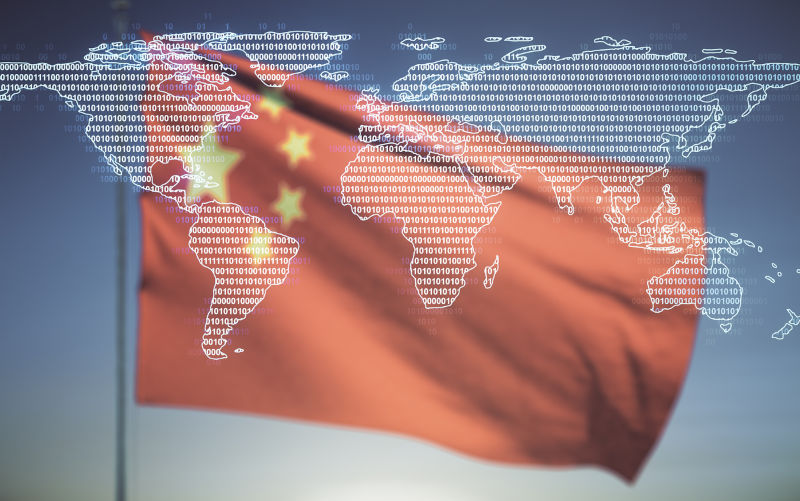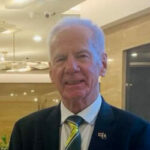In Asian media this week: America must show it has answers to global problems. Plus: Thai government talks of gun control; Australia-China de-coupling is impossible; Myanmar military’s killing, torture and rape; Cold War returns to Korean Peninsula; China’s EV makers have edge over US.
The battle between the US and China has moved to a new front – what we might call disinformation warfare.
As Al Jazeera reported, the US has accused China of spending billions a year to shape perceptions of the country through influence, censorship and disinformation – a large-scale campaign that could threaten global freedoms.
A State Department report said Beijing used deceptive and coercive methods to try to “bend the global information environment” to its advantage.
In recent years, China had stepped up its social media campaigns, particularly on such issues as Xinjiang, the South China Sea and Taiwan. Its state media had set up editorial partnerships with traditional and online media elsewhere, sometimes even buying control of outlets.
But Global Times, one of Beijing’s official English-language papers, said in response: “Isn’t the report about the US itself?
“Has China ever manipulated global information like the US has been doing?”
It said US political chiefs and media outlets uniformly bleated the word “unprovoked” in referring to the Russia-Ukraine war, when it had been deliberately provoked by NATO’s eastern expansion.
And the US drew public attention away from Seymour Hersh’s report that the US masterminded the Nord Stream gas pipeline explosion.
Brad Glasserman, an American academic and regular contributor to The Japan Times, said Chinese President Xi Jinping clearly understood the need for governments to make sure their citizens – and the rest of the world – heard the stories they wanted told.
China’s desire to reshape the global media landscape was understandable and laudable. It made no sense to trust a media system dominated by hostile countries. But it was wrong to use coercion to shape and suppress critical reporting and to deceive audiences with “neutral” analysis that was anything but.
Glasserman said the US could not simply assume its superiority was self-evident and think there was no need to show it had better answers to problems.
“The US may be the better choice but it must be proven,” he said. “Especially today, when the Chinese government is doing much to materially improve the lives of its citizens and those similarly situated around the world.
“That is real news, no matter who is reporting.”
In Thailand, guns are cool
Thailand suffered another shooting rampage this week, leaving two people dead and five wounded – and highlighting a dark side of the Land of Smiles.
Thai people own more than 10 million guns, Bangkok Post reported. The country ranked 13th for small gun possession and 15th for gun deaths, with 2804 people killed by firearms last year.
The latest shootings took place at Siam Paragon, one of Bangkok’s most upmarket shopping centres. A 14-year-old boy opened fire in the mall, killing two women, one from China and one from Myanmar.
The Thai Government announced a series of short-term gun control measures, including suspending permits and importing and trading firearms. Deputy Prime Minister and Interior Minister Anutin Charnvirakul said all existing gun control laws would be reviewed and changed as necessary to ensure public safety.
But, as Singapore’s The Straits Times noted in a commentary, it will take political will to tackle Thailand’s gun culture. The story quoted Dr Piyaporn Tunneekul, a criminologist, as saying young people thought guns were cool.
“The people tell me a gun means power,” she said. “If you have a gun, you have power.”
Bangkok Post reported on Thursday police arrested three men for allegedly supplying firearms and ammunition to the 14-year-old. The story said the boy bought the gun used in the shootings online for 16,000 baht (about $A700).
Relatives of the two slain women collected their bodies on Wednesday, The Straits Times said.
The Chinese woman was a tourist. The Myanmar woman worked in Thailand and had sent 10,000 baht ( about $A425) to her parents each month. Her employer said they would keep the woman’s spirit alive by continuing the payments.
Secret studies of diversifying away from China
Australian political leaders have sometimes spoken of diversifying export markets away from China but the ideas of “de-risking” or “de-coupling” have not gained firm support.
Hong Kong’s South China Morning Post reported this week that Australian authorities conducted three studies over the past eight into whether to completely diversify supply chains and all concluded it was impossible.
“The unanimous and non-partisan judgment helped to justify Canberra’s renewed trade engagement with Beijing late last year, despite obstacles such as AUKUS,” the paper said in a story marked “exclusive”.
DFAT and Treasury jointly conducted two studies, one in 2015 and the other in 2020, the story said. Both concluded no other markets could replace China.
Former treasurer Josh Frydenberg had vetoed the release of either report, as the conclusions did not fit in with the Morrison government’s China narrative, it said.
A similar study under the Albanese Government reached the same conclusion.
The story quoted David Olsson, president of the Australia China Business Council, as saying the Government’s new Southeast Asia economic strategy highlighted the massive potential of the region but it would take time to be realised.
“Accessing the China market has taken many decades for many exporters, building relationships, networks and understanding the laws and culture,” Olsson said. “Australian business is a long way from that level of engagement in Asia.”
Myanmar junta repression: ‘inhumanity in its vilest form’
Myanmar’s ruling junta has kept up a campaign of killing, torture, and sexual violence as it battles to hold onto power following its 2021 coup.
The extent of the violent efforts to crush resistance to its rule is spelled out in a recent report by the UN’s Office of the High Commissioner for Human Rights.
Frontier Myanmar, an online exile magazine, said the report, covering April 2022 through to July this year, found a seemingly endless spiral of military violence.
Human rights chief Volker Turk said investigators had documented 22 instances of mass killings of 10, or more, people. These included an air strike on a gathering in a village that killed about 150 people and the bombing of a rebel-held concert that killed dozens.
Soldiers had repeatedly carried out rapes and killings of men, women and children in villages suspected of supporting resistance fighters. Troops had torched 24,000 houses and buildings this year. Some had displayed beheaded or otherwise defiled corpses in an attempt to terrorise residents.
Ucanews.com, the Catholic Asian news site, carried a commentary by Benedict Rogers, its human rights columnist, saying the UN reported soldiers burning civilians alive and dismembering, raping, beheading, stabbing or bludgeoning entire families, include elders and toddlers.
He quoted Commissioner Turk as saying the violations showed inhumanity in its vilest form.
US pushes Russia, North Korea into closer military ties
After more than 30 years, the Cold War has returned to the Korean Peninsula. And it is colder than ever, says John Merrill, a Korean studies expert.
The recent meeting between Vladimir Putin and Kim Jong-un marked a significant watershed.
The summit showed that Pyongyang has given up on normalising relations with Washington, he says. “[This] exposes the bankruptcy of current US policy that has relied more on coercion than diplomacy to end North Korea’s nuclear program.”
Writing in The Korea Times, Merrill says an example was the recent Camp David summit between the US, South Korea and Japan that shored up the alliance structure in East Asia. Meanwhile, Seoul is supplying weapons to Ukraine, via Poland.
“One of the cardinal principles of the ‘realist school’ of international relations is the so-called ‘action-reaction’ dynamic, where an action by one side leads to a push back by the other,” he says.
“The Camp David Agreement could thus be seen as a driver for closer military co-operation between North Korea and Russia and possibly China.”
The Korea Herald reported the US has called on China to use its influence to encourage North Korea to return to diplomacy.
Government spokesman Matthew Miller made the remarks amid expectations that an expected summit between Xi Jinping and Putin later this month would lead to closer ties between China, Russia and North Korea, the paper said.
Carmakers find refuge from EU probe
China’s EV manufacturers, spurred on by increasing competition in the domestic market, have developed technological and price advantages over the US car industry, says Global Times, an official English-language paper.
“Intense competition among global EV manufacturers has unsettled the US automotive industry, which has been a pillar of the US economy,” the paper says in an editorial.
The editorial discusses China’s high-tech rise generally, but with special reference to the car industry. It notes that Ford has announced it is pausing plans to build a $3.5 billion EV battery plant in Michigan, until it is confident it can run the factory competitively.
“Although the US Government is flexing all of its policy muscles available to suppress China’s high-tech industry, US competitiveness in cutting-edge technologies has continued to decline,” the paper says.
China might be confident of beating US carmakers, with the paper saying that apart from Tesla, American companies have a relatively low share of domestic and international EV markets. But in Europe, China’s EV makers face an investigation into alleged state subsidies.
But Hong Kong’s South China Morning Post reports that China’s EV companies have found a refuge in Thailand, which has the biggest auto sector in ASEAN. An article by Bob Savic and Chris Dixon, two British academics, says Thailand is courting Chinese companies and expect EV makers to invest up to $US 1.44 billion.
They say Chinese EV makers had planned to set up production in Thailand well before the EU probe was announced. But their forward-looking diversification might allow them to benefit from the geopolitical security that comes from Thailand’s friendly relations with major international partners.
David Armstrong is an Australian journalist and editor with decades of experience, including as editor-in-chief of The Australian, editor of The Bulletin and The Canberra Times and deputy editor the Daily Telegraph in Australia. He is also former editor and editor-in-chief of the South China Morning Post, former president of the Bangkok Post company, former chair of the Phnom Penh Post company and is current chair of ucanews.com.

